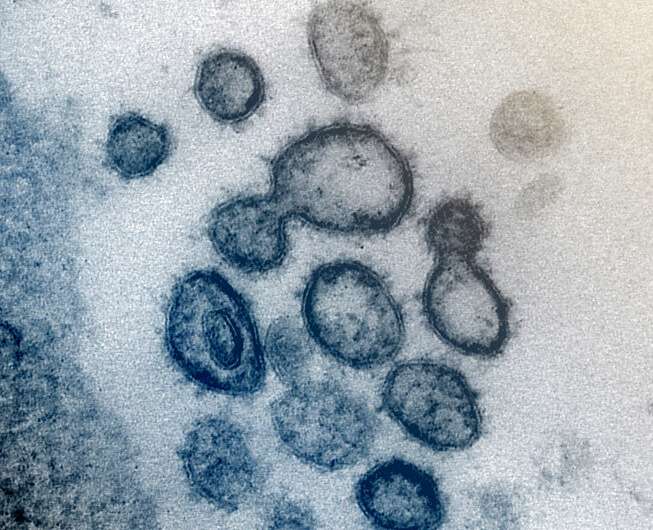DNA may hold the key to protecting populations from COVID-19

Scientists from The University of Western Australia's Faculty of Science are part of a global team that is developing a new DNA test for COVID-19, which can provide faster and more detailed results than other tests.
This test can be used to understand how COVID-19 is mutating, aid vaccine development and understand its journey across populations globally—for instance, how it adapts to a new host. It is currently being used for COVID-19 research, but once approved by the US Food and Drug administration it can be used for both the diagnostic testing of patients and to enable a better understanding of the virus.
The test is based on technology developed through the DNA Zoo project, a global initiative that analyses DNA from different species to help researchers, leaders and policy-makers better understand species through their DNA as well as threats to their survival.
Dr. Parwinder Kaur, from UWA's School of Agriculture and Environment, who is the Australian project lead, said the new test would enable one person to process hundreds of samples a day, at a cost comparable to current tests.
"Following full genome sequencing, the results can be processed rapidly in less than two minutes using local high-performance computing software through WA's Pawsey Supercomputing Centre, Microsoft and the technology company DUG."
First author of the study, Brian St Hilaire, graduate student from The Aiden Lab—Baylor College of Medicine, said that the preliminary testing approach published on bioRxiv, provided more than just a positive or negative result for the virus.
"Instead, this test extracts intricate and highly complex genetic data surrounding the strain of the virus and its behaviour," he said.
Project lead Dr. Aviva Presser Aiden, from the Baylor College of Medicine, said as COVID-19 continued to spread across the world, global healthcare systems faced significant challenges.
"Extensive diagnostic testing is integral to disease control," Dr. Aiden said. "This test will help us understand a number of unknowns about the disease and its transmission."
Dr. Kaur said because the test was able to detect low viral concentrations compared to other diagnostic tests, it could also be used to monitor COVID-19 through wastewater treatment plants to track its spread through communities.
"We hope the test will provide important new insights into the infection by analysing the genetic makeup of the virus which will assist with disease control into the future," she said.
"For years to come, humans will be co-existing with animals that can transmit diseases like COVID-19, so understanding the genetic makeup and behaviour of these diseases is going to be vital in preparing us for pandemics in the future."
More information: Brian Glenn St Hilaire et al. A rapid, low cost, and highly sensitive SARS-CoV-2 diagnostic based on whole genome sequencing, (2020). DOI: 10.1101/2020.04.25.061499




















